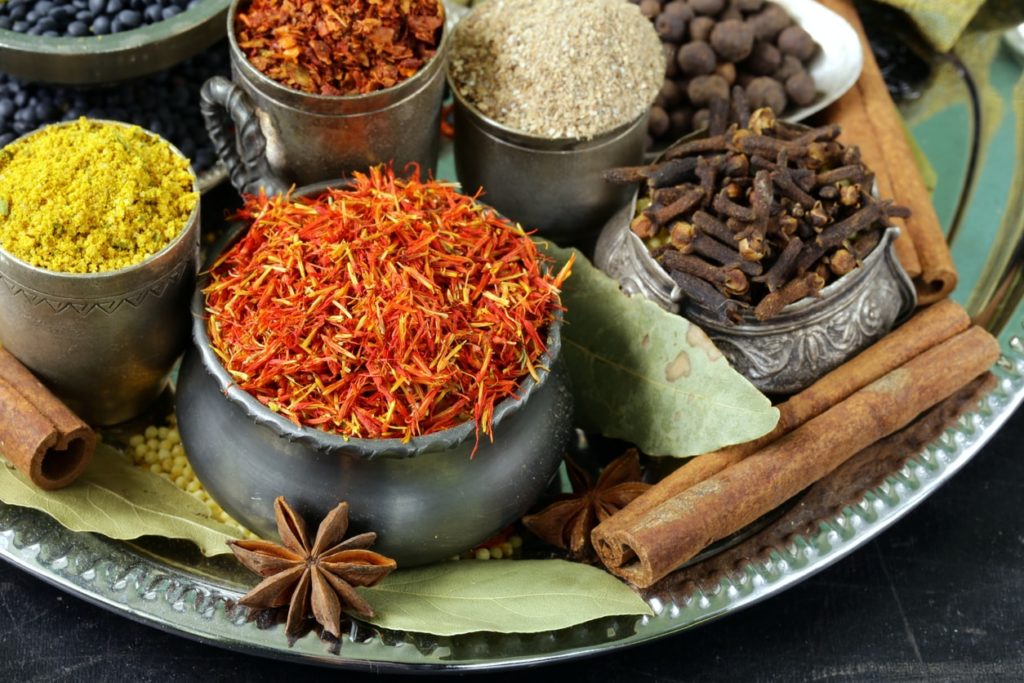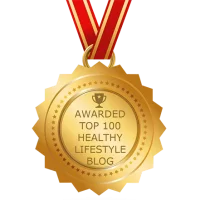Did you know there are many medicinal spices that help lower blood pressure? High blood pressure is an epidemic that currently affects one in every three American adults. High blood pressure is known as the ‘silent killer’ because it is largely asymptomatic, which is why it is imperative to have your blood pressure measured regularly. When monitoring blood pressure, you should take measurements at random times of the day, once a day, and record the readings. Over the course of a month, most of the readings should be below 120 mmHg systolic blood pressure and 80 mmHg diastolic blood pressure. If you or your loved ones suffer from high blood pressure, you should schedule a visit to see Dr. Cynthia Thaik, MD, considered by her patients to be one of the best holistic cardiologists in Los Angeles.
Ways to Reduce High Blood Pressure
Before prescribing excessive amounts of medications, Dr. Cynthia strongly believes in helping her patients make behavioral lifestyle changes to improve their overall health. To reduce blood pressure, Dr. Cynthia recommends the following:
- an anti-inflammatory diet
- limiting sodium and carbohydrate intake
- increasing physical activity
- weight loss
- decreasing alcohol intake
- ancient traditional treatments, such as spices with medicinal benefits
Herbs That May Help Lower Blood Pressure
Herbs and spices are a fantastic way to increase the medicinal value of your foods and reduce your blood pressure naturally. Researchers have discovered a connection between the phenol content of certain herbs and spices and their capacity to prevent glycation and formation of AGE compounds that are responsible for premature aging and heart disease. These studies suggest that some common spices can help protect against heart disease by lowering blood pressure.
- Garlic –Garlic contains allicin, a substance which has antibacterial, antioxidant, lipid lowering and anti-hypertensive properties. Garlic has the ability to lower your blood pressure by helping your blood vessels to relax and dilate, which allows blood flow more freely in the body. Studies have proven that fresh garlic has more potent heart-protective properties than processed garlic. The recommended intake is four cloves of garlic (about 4 grams) a day to noticeably reduce blood pressure readings. You can add fresh garlic to a number of your favorite recipes. And if you simply can’t eat it or don’t like the taste of garlic, try a supplement form of 500 mg daily.
- Cardamom – Cardamom is a seasoning that comes from India and is often used in the foods of South Asia. A 2009 study published in the Indian Journal of Biochemistry & Biophysics analyzed the health effects of cardamom and found that participants given powdered cardamom daily for several months saw significant reductions in their blood pressure. You can include cardamom seeds or powder in spice rubs, in soups and stews, and even in baked goods for a special flavor and a positive health benefit.
- Cinnamon – Cinnamon not only prevents heart disease, but it can also help treat diabetes. Consuming ¼ tsp. to 1 tsp. of cinnamon every day has been shown to lower blood pressure in patients with diabetes. Include more cinnamon in your diet by sprinkling it on your breakfast oats and in your coffee, for dinner try adding cinnamon to stir-fries, curries, and stews.
- Curcumin (Turmeric)– You may not have heard of curcumin before, but you have probably heard of turmeric, the spice that is best known as an ingredient in Indian curry and yellow mustard. Turmeric is a natural blood pressure reducer and cardiovascular spice that has been used for years. Curcumin is a powerful antioxidant with anti-inflammatory properties that help lower blood pressure by lowering the excess platelet aggregation that occurs in sticky, clot-forming blood. Try cooking with turmeric or if you wish to take curcumin as a nutritional supplement, try 500 mg daily. Do not take turmeric if you have gallbladder disease, gallstones, and kidney stones.
- Ginger – Ginger may help control blood pressure, as it has been shown to improve blood circulation and relax the muscles surrounding blood vessels. Commonly used in Asian foods, ginger is a very versatile ingredient. You can chop, mince, or grate fresh ginger into stir-fries, soups, and noodle or vegetable dishes, or add it to desserts or tea for a refreshing taste.
- Cayenne Pepper – The key compound in cayenne pepper is a substance called capsaicin, which is the main active ingredient in a number of over-the-counter “hot creams” for joint and muscle pain. Capsaicin creates the sensation of heat through a thermogenic effect that raises body temperature and boosts circulation in the area where it’s applied. It is also a natural blood pressure reducer and cardiovascular health supplement. Add cayenne pepper in cooking your meals once or twice a week to help lower your blood pressure.
- Black Pepper – has antioxidant and antibacterial effects, improves digestion and weight loss. Black pepper or its active principle piperine inhibits free radicals, thereby protecting against oxidative damage. Studies have demonstrated significant protection against adriamycin induced cardiotoxicity. Black pepper influences lipid metabolism by mobilizing fatty acids. It contains vanadium and promotes cardiac functional recovery in heart attacks and in thickened heart muscles from blood pressure stress overload.
Easy-to-Prepare Recipes Using Herbal Supplements
Taking advantage of the antioxidant and anti-inflammatory effects of medicinal spices and herbs is an excellent way to boost your overall health and use natural forms of lowering blood pressure. Mix these herbs and spices with your soups, salads, fish, meat, and vegetable dishes. It’s a healthier and cheaper alternative to keeping bottles of prescription drugs and synthetic supplements. We recommend the easy-to-prepare recipes below as parts of a heart-healthy diet.
Heart-Healthy Pho (serves 4)
This recipe modifies the traditional Vietnamese dish to be more heart-healthy, while retaining all of the herbs and spices that provide such big benefits for lowering blood pressure. The perfect comfort food for cold and wet days!
Broth ingredients:
1 large white onion, peeled and halved
3 inch piece of fresh ginger, halved lengthwise
5 star anise
4 whole cloves
3 3 inch cinnamon sticks
2 cardamom pods
1 tablespoon whole coriander seeds
8 cups chicken or vegetable stock
1 tablespoon brown sugar
1 teaspoon fish sauce
Soup ingredients:
8 ounces very thinly sliced chicken breasts/thighs (boneless and skinless)
7 ounces uncooked thin rice noodles
Garnishes (can include lime wedges, fresh herbs such as cilantro or Thai basil, thinly-sliced chiles, bean sprouts, or sauces such as sriracha or hoisin)
- First, put the onion and ginger on a baking sheet, cut-side-up, and brush lightly with oil. Broil for 7-10 minutes, until slightly charred. Remove and set aside.
- Heat the anise, cloves, cinnamon, cardamom, and coriander for about 3 minutes in a large stockpot over medium-high heat. They should be fragrant when you put in the charred onion, ginger, and stock. Stir to combine. Cook until the broth simmers.
- Reduce heat to medium-low, cover with a lid, and simmer for a further 30 minutes. Add the chicken to the broth, and stir the fish sauce and sugar in. Meanwhile, prepare the noodles al dente, and drain in a strainer before rinsing with cold water. Toss with oil to prevent them from sticking.
- To serve, add a handful of noodles to each serving bowl. Ladle the simmering hot broth and chicken into each bowl. Top each bowl with garnishes to taste. A twist of lime juice is strongly recommended!
This recipe is low carb and low sodium, while incorporating many helpful herbs and spices such as ginger, cardamom, and cinnamon.
Quick Shrimp Curry (serves 4)
This easy, South Asian-inspired recipe is a great and tasty way to feed a family, and only uses one pot.
Ingredients:
2 tablespoons olive oil
2 large onions, peeled and sliced
4 cloves of garlic, chopped
1 inch piece of ginger, finely chopped
1 teaspoon curry powder
1 teaspoon turmeric
1 teaspoon cayenne pepper
1 can light coconut milk
1 ½ pounds peeled and diced shrimp
1 cup peeled, seeded, and diced tomato (canned is fine, drain before using)
- Place oil in a large skillet and turn heat to medium-high. After a minute, add onions, ginger, and garlic (you can add ground black pepper). Stir occasionally until onions are very soft, close to falling apart (15 minutes or so). Stir in curry powder, turmeric, and cayenne pepper, and cook for another minute or two.
- Add coconut milk, cooking until it thickens (approximately 2 minutes). Stir occasionally, then add shrimp, stirring again, and cook till done (3-5 minutes).
- Add tomato and cook for another minute. Adjust seasonings as desired. Serve over brown rice. Garnish with basil or mint.
This is another recipe that offers substantial nutrition for people with high blood pressure without too much sodium or an overabundance of carbohydrates. Coconut milk offers good cholesterol, and light coconut milk is much lower in calories than its full fat alternative. This dish is endlessly adaptable. You can add spinach or bell peppers for extra vegetables, or substitute other lean proteins for the shrimp. It prominently features garlic, turmeric, cayenne pepper, and black pepper for heart health. Shrimp is also an excellent source of omega-3 fatty acids (usually found in fish oil). Research shows shellfish, particularly shrimp, promotes heart health.
Start Lowering Your Blood Pressure with the Power of Medicinal Spices
High blood pressure affects many people, often without any noticeable symptoms. That’s why it’s crucial to have regular blood pressure checks and take proactive steps to maintain a healthy range. If you or your loved ones struggle with high blood pressure, consider visiting Dr. Cynthia, a renowned holistic cardiologist in Los Angeles.
Dr. Cynthia’s holistic approach integrates the use of herbal supplements to boost overall health and facilitate natural blood pressure reduction. Explore the powerful effects of garlic, cardamom, cinnamon, curcumin (turmeric), ginger, cayenne pepper, and black pepper, all of which have been linked to blood pressure reduction. Don’t rely solely on medications—embrace the healing properties of medicinal spices and make positive changes to your diet and lifestyle under the care of Dr. Cynthia. Take control of your blood pressure and embark on a journey towards better heart health – contact us today!
References:
Indian Journal of Biochemistry & Biophysics. “Blood pressure lowering, fibrinolysis enhancing and antioxidant activities of Cardamom.” Vol 46, December 2009, pp 503-506
About the Author
Dr. Cynthia Thaik, M.D. is a Harvard-trained cardiologist serving the greater Los Angeles community at her holistic health center in Burbank and Valencia, CA. Dr. Thaik is the author of Your Vibrant Heart: Restoring Health, Strength, and Spirit from the Body’s Core. To learn more about Dr. Thaik or the Holistic Healing Heart Center, or to schedule an appointment, please contact info@drcynthia.com or call (818) 842-1410.





